Housekeeping - Definition, Role, Responsibilities, and Layout
Housekeeping plays an essential role in maintaining cleanliness, order, and aesthetic appeal. Defined as the provision of a clean, comfortable, safe, and aesthetically appealing environment, housekeepings responsibilities reach far beyond simple cleaning tasks.
Housekeeping, indeed, plays an indispensable role in upholding cleanliness, order, and an enticing visual appeal. This function, however, is not confined to just tidying up spaces; it is an art and a science that contributes significantly to the creation of a clean, comfortable, safe, and visually engaging environment. It goes beyond the mundane and taps into the realm of creating visually appealing spaces that invite relaxation, productivity, and overall well-being. Housekeeping's responsibilities reach far beyond simple cleaning tasks, enveloping a variety of roles that contribute to the smooth functioning of any establishment, be it a home, hotel, or office. These roles include proper waste disposal, efficient organization of spaces, regular maintenance of appliances, and even the selection of aesthetically pleasing decor.

Housekeeping is the quiet engine that keeps our living and working environments running smoothly, contributing to our health, happiness, and productivity. In essence, housekeeping is woven into the fabric of our everyday lives, often unnoticed but deeply impactful.
It's an expansive field that combines practical skills and an eye for beauty to create spaces where we can thrive. This multifaceted role is a testament to the importance of maintaining not just cleanliness, but also order and aesthetic appeal. It's time we acknowledged and appreciated the profound role housekeeping plays in our lives, contributing to our comfort, safety, and the beauty of our surroundings.
Four Types of Housekeeping
There are four common types of housekeeping. These include cleaning/maid services, live-in housekeeping services, live-out housekeeping services, and house manager/housekeeping services.
Each provides unique services tailored to the needs of the homeowner or establishment. In the realm of home and establishment maintenance, there exist four primary categories of housekeeping services. Each one is specially designed to cater to the unique requirements of a variety of living spaces. Firstly, we have cleaning or maid services. These services encompass the standard cleaning tasks that ensure a home or business is kept tidy and hygienic. From dusting and vacuuming to sanitizing bathrooms and kitchens, these fundamental tasks are carried out by skilled professionals who possess a keen eye for cleanliness. Next, we have live-in housekeeping services. This model is ideal for individuals or families who require round-the-clock assistance. Live-in housekeepers not only take care of the cleaning duties, they often assist with other tasks like cooking, laundry, and sometimes even childcare. Their constant presence ensures a consistently clean and organized living environment, and they often become an integral part of the household.
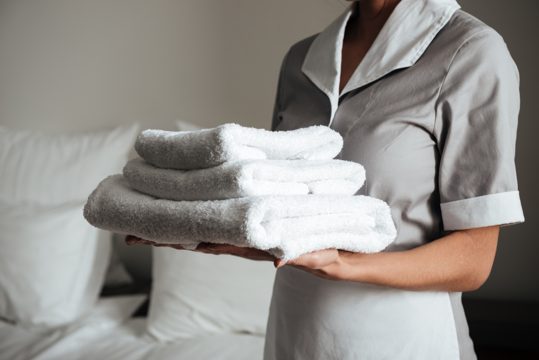
Thirdly, we have live-out housekeeping services. Similar to live-in housekeepers in terms of their duties, live-out housekeepers differ in that they maintain the home during set hours and return to their own residences after their shift.
This arrangement works well for those who value their privacy but still desire the benefits of a professional housekeeping service. Finally, we have house manager or housekeeping services. This is the most comprehensive option, ideal for larger estates or commercial establishments. House managers not only oversee cleaning duties, but they also manage other staff, coordinate with contractors, and ensure the smooth running of the household or establishment. They play a key role in ensuring everything is functioning as it should, taking the stress of management off the shoulders of the homeowner or business owner. In conclusion, the type of housekeeping service one opts for depends largely on their individual needs and lifestyle. Whether you need a simple cleaning service or a full-scale house manager, the world of housekeeping services has a solution for everyone. These services not only maintain cleanliness and organization, they also contribute to a more relaxed and enjoyable living or working environment.
What Does Housekeeping Include?
Housekeeping encompasses a broad range of tasks. These include housecleaning, such as disposing of rubbish, cleaning dirty surfaces, dusting, and vacuuming.
It also includes maintaining the aesthetic appeal of the space. Housekeeping, in its essence, is a multifaceted discipline that extends far beyond mere tidying up. It is indeed an art and skill that encompasses a broad swath of crucial tasks, each playing a pivotal role in creating a clean, comfortable, and visually pleasing environment. This process begins with the seemingly ordinary but essential task of housecleaning - a meticulous process that involves the disposal of rubbish, cleaning of dirty surfaces, dusting, and vacuuming. However, it's not just about dealing with the apparent clutter or grime.

This is a task that requires a keen eye for detail and a comprehensive understanding of various cleaning methods and products. It's about ensuring every nook and cranny is free from dust, making surfaces sparkle, ensuring that the floors are not just dirt-free but also gleaming, and that the air in the room is fresh and inviting.
Moreover, housekeeping is not merely a process but a continuous effort in maintaining the aesthetic appeal of the space. This involves arranging furniture and decor in a way that maximizes the functionality and visual appeal of the space, fluffing up cushions, straightening rugs, and even ensuring that the window views are unobstructed. It's about creating a space that is not just clean but also harmonious and inviting - a place where one can truly relax and feel at home. In conclusion, housekeeping is a comprehensive process that marries cleanliness, organization, and aesthetic appeal, transforming any space into a true sanctuary.
7 Standards for Housekeeping
Housekeeping adheres to the 7S standards which include sort, systematize, sweep, standardize, safety, self-discipline, and sustain. These standards ensure a high level of organization, cleanliness, and safety.
Housekeeping, a vital cog in the wheel of every organization, stringently adheres to the exemplary 7S standards. These standards, embodying seven key principles - sort, systematize, sweep, standardize, safety, self-discipline, and sustain, serve as a guiding light, paving the path to a superior level of organization, cleanliness, and safety. The first principle, 'Sort,' emphasizes the essence of decluttering, ensuring that every item is in its rightful place, thereby creating a conducive environment free from unnecessary distractions. 'Systematize,' the next step, delves deeper into the realm of organization, establishing a place for everything and ensuring everything is in its place, enhancing workflow efficiency. 'Sweep,' another integral principle, underscores the importance of regular cleaning, maintaining a pristine environment, and upholding the highest hygiene standards.
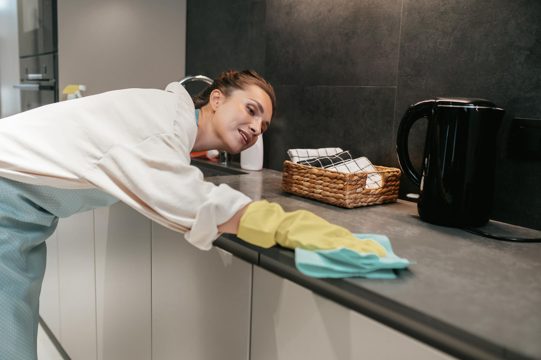
'Standardize,' the fourth principle, outlines the need to establish consistent practices and procedures, facilitating a seamless and efficient housekeeping routine. 'Safety' is a cornerstone of the 7S standards, underscoring the importance of creating and maintaining a safe environment for both employees and visitors.
It focuses on preventing accidents and ensuring overall well-being. 'Self-discipline,' the penultimate principle, accentuates the need for individual responsibility, fostering a culture where everyone takes ownership of their environment. Finally, 'Sustain' wraps up the 7S standards, emphasizing the importance of maintaining these practices in the long run, ensuring continuous improvement and a consistently high standard of cleanliness and organization. By adhering to these 7S standards, housekeeping not only preserves a physically appealing environment, but also cultivates a space where productivity and safety go hand in hand.
Five Duties of a Housekeeper
A housekeepers duties can vary depending on the type of service provided. However, five standard tasks include cleaning and sanitizing hotel and guest rooms, vacuuming and sweeping floors, carpets, and rugs, making beds and changing linens, cleaning and sanitizing bathrooms, showers, toilets, sinks, and countertops, and replenishing toiletries and towels.
A housekeeper's role is a dynamic one, with the scope of responsibilities fluctuating based on the nature and caliber of the services being provided. However, there are five fundamental tasks that remain consistent across the board, forming the crux of their job profile. Firstly, they are tasked with the meticulous cleaning and sanitization of hotel spaces and guest rooms. This involves not only a superficial sweep but a thorough deep-clean to ensure the highest standards of hygiene and comfort for every guest. Secondly, housekeepers are entrusted with the upkeep of the floors, carpets, and rugs spread across the establishment. This involves vacuuming and sweeping, which are not just about removing visible dirt and debris, but also about maintaining the quality and appearance of these surfaces. They must pay careful attention to the smallest of details, ensuring that every corner is spotless and that the carpet fibers are free from dust and allergens. The third duty on their list is the art of making beds and changing linens. This task may sound simple, but in the hospitality industry, it is akin to a science.
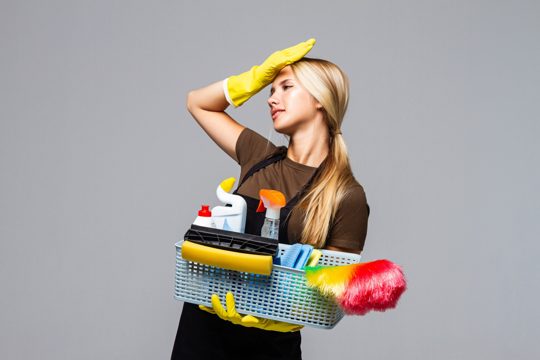
The beds need to be made perfectly, with crisp, fresh linens that are not only visually appealing but also offer the utmost comfort to the guests. This is a task that requires precision, speed, and an eye for detail.
The fourth task is, again, focused on cleanliness and hygiene - the cleaning and sanitizing of bathrooms, showers, toilets, sinks, and countertops. This is a critical task, as bathrooms are often the first place guests inspect for cleanliness. Housekeepers need to ensure that these areas are not just visibly clean, but also sanitized to provide a germ-free environment for the guests. Finally, housekeepers are responsible for replenishing toiletries and towels, ensuring that guests have all the essentials they need for a comfortable stay. This includes restocking items like soap, shampoo, toilet paper, and fresh towels, but also extends to making sure these items are presented in an inviting and organized manner. In essence, a housekeeper's duties, while primarily centered around cleanliness and organization, extend into creating an overall inviting and comfortable atmosphere for guests. Their role is more than just a list of tasks - it's about creating a home away from home.
Emptying Trash Receptacles
One of the essential duties of a housekeeper is emptying trash receptacles. This task is fundamental to maintaining a clean and healthy environment.
Indeed, one of the essential and often underestimated duties of a housekeeper is the seemingly simple task of emptying trash receptacles. This task, although it may appear trivial to some, plays a pivotal role in keeping our surroundings immaculate, organized, and conducive to productivity. Imagine walking into a room filled with overflowing bins, discarded papers strewn across the floor, and the persistent, unpleasant odor of waste. Such a sight not only dampens one's mood but also hinders creativity, productivity, and overall well-being. On the other hand, a clean, well-maintained space, free from unwanted clutter and garbage, invites positivity, encourages focus, and fosters a healthier living and working environment.

Therefore, this duty of a housekeeper, of regularly emptying trash receptacles, is not just a rudimentary chore, but a fundamental step towards maintaining a clean, fresh, and healthy environment that we all strive to inhabit. Moreover, this task also underlines the importance of proper waste management and disposal.
By ensuring that trash receptacles are regularly emptied, housekeepers are helping to reduce the spread of germs and bacteria, thereby contributing to a sanitary living condition. It's an essential task that helps to create a pleasant and comfortable atmosphere for everyone. So the next time you see your housekeeper carrying out this duty, remember the crucial role they play in making your space a cleaner, healthier, and more enjoyable place to live and work.
Good Housekeeping Rules
A good housekeeping program plans and manages the orderly storage and movement of materials from their point of entry to exit. It includes a material flow plan to ensure minimal handling, making sure that work areas are not used as storage areas.
A robust housekeeping program is designed to meticulously manage the seamless storage and transfer of materials right from their point of entry to the point of exit. It involves a strategic plan for material flow that guarantees minimal handling. This system is crucial as it ensures that workspaces are not unnecessarily turned into storage areas, thus maximizing efficiency and productivity. A well-orchestrated housekeeping program incorporates numerous processes and strategies. One such strategy is the implementation of a detailed material flow plan. This plan is a fundamental component of the program, designed to minimize the handling of materials. It's meticulously crafted, taking into consideration the uniqueness of each material and the careful coordination of their movement.
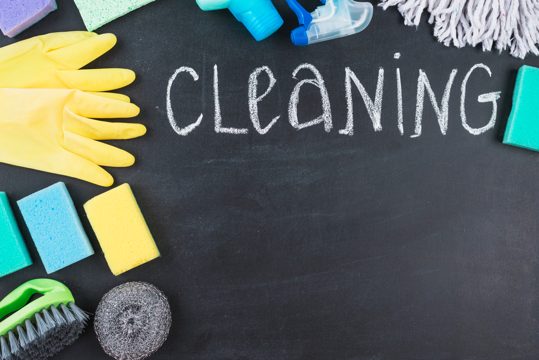
This plan ensures that materials are moved swiftly and efficiently from the point of entry to exit, eliminating any potential bottlenecks or inefficiencies. Moreover, a good housekeeping program also ensures that work areas are not misused as storage areas.
This is achieved through the clear demarcation of zones within the workspace. It designates specific zones for work and storage, thereby ensuring that each area is utilized for its intended purpose. This eliminates clutter, promotes a safer working environment, and enhances productivity. In conclusion, a comprehensive housekeeping program is not just about planning and managing material storage and movement. It's also about creating a conducive and efficient work environment. It's about striking a balance between material handling and workspace utilization, ensuring that both aspects work in harmony to drive overall productivity and efficiency.
The Importance of Planning
A well-planned housekeeping program ensures that workers move materials to and from work areas as needed. This efficient process prevents clutter and promotes a clean, safe environment.
A robust and meticulously planned housekeeping program guarantees that workers can transport materials to and from their respective work areas as and when required. This systematic approach not only enhances productivity but also ensures optimal usage of space and resources. It's a mechanism that seamlessly blends efficiency with safety, ensuring that clutter is kept at bay, thereby promoting an unobstructed flow of work. Moreover, this program fosters an environment of cleanliness and organization, contributing to the overall aesthetic appeal of the workspace.
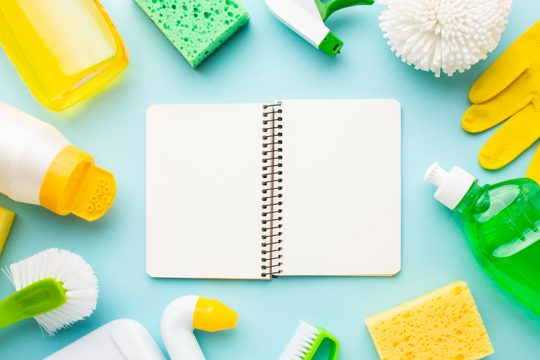
It further boosts morale and motivation among employees, knowing they are operating in a well-maintained, hazard-free setting. The program also plays a significant role in preventing potential accidents, protecting both the employees and the company from unexpected setbacks.
As a result, the implementation of a well-planned housekeeping program is synonymous with the creation of a clean, safe, and efficient working environment. This is not merely a process, but a commitment to the well-being and productivity of the workforce. Thus, it serves as a testament to the company's dedication to maintaining high standards of safety and operational efficiency, reflecting positively on its overall reputation and credibility.
Definition of Housekeeping
Housekeeping may be defined as the provision of a clean, comfortable, safe, and aesthetically appealing environment. This definition underscores the importance of creating a pleasant space for inhabitants.
Housekeeping, as we know it, can be understood as the committed endeavor to create and maintain a clean, comfortable, safe, and aesthetically appealing environment. This definition really emphasizes the significance of crafting an inviting and pleasant space for everyone who resides or visits there. It's not just about cleanliness or orderliness, but also about creating a space that radiates warmth, comfort, and a sense of belonging. Creating a clean environment is the first step towards effective housekeeping. It includes regular cleaning routines like dusting, vacuuming, disinfecting surfaces, and ensuring the environment is free of clutter. This cleanliness contributes to the overall health and well-being of the inhabitants, reducing the risk of illnesses and creating a refreshing atmosphere. Comfort, on the other hand, is about creating a space where one can relax and unwind. It's about having the right temperature, lighting, furniture arrangement, and personal touches that make the space feel like home. It's about ensuring that every element in the space caters to the physical and emotional comfort of the inhabitants.
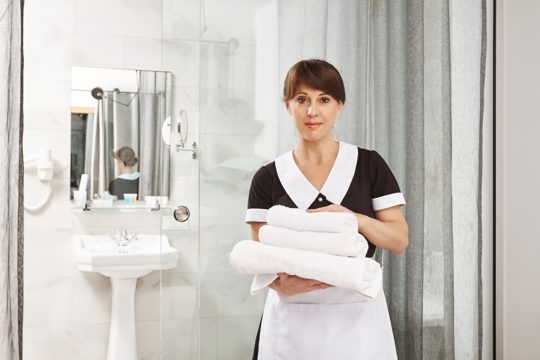
Safety is another crucial aspect of housekeeping. It involves safeguarding the environment from potential hazards and risks.
This could mean securing loose rugs to prevent falls, installing smoke detectors for fire safety, or childproofing the house for young ones. Housekeeping ensures a safe habitat where people can live without constant worry or fear. Lastly, the aesthetic appeal of a space cannot be overlooked. A well-decorated space with a pleasing color palette, attractive furnishings, and thoughtful decor can significantly uplift one's mood and stimulate positive feelings. Housekeeping plays a significant role in creating such visually appealing spaces that are not only functional but also pleasing to the eye. In conclusion, housekeeping goes beyond mere cleaning. It's a comprehensive approach to creating and maintaining spaces that are clean, comfortable, safe, and aesthetically pleasing. This understanding underscores the importance of housekeeping in creating a pleasant space for inhabitants, making their living experience enjoyable and satisfying.
Housekeeping in Hotels
Housekeeping is an operational department in a hotel, which is responsible for cleanliness, maintenance, aesthetic upkeep of rooms, public areas, back areas, and the surroundings. This department is essential to the hotels operation and the satisfaction of its guests.
Housekeeping, as a vital operational department in a hotel, carries the indispensable task of ensuring cleanliness, undertaking regular maintenance, and preserving the aesthetic appeal of not just the guest rooms, but also the public areas, the less frequented back areas, and even the surrounding premises. This department is often the unseen hero, working tirelessly behind the scenes to ensure the hotel's presentation is always at its peak, with every corner sparkling clean and every element in its designated place. More than just cleaning, the housekeeping department is responsible for the meticulous maintenance of all hotel facilities, ensuring that everything is in perfect working order for the comfort and convenience of the guests. It's their attention to detail that ensures guests can relax in a well-maintained environment, where everything from the air conditioning to the bathroom fittings works flawlessly. Furthermore, the housekeeping department plays a pivotal role in upholding the hotel's aesthetic appeal. They are the ones who ensure that the decor remains fresh and inviting, the linens are crisp and clean, and the ambiance exudes warmth and welcome.
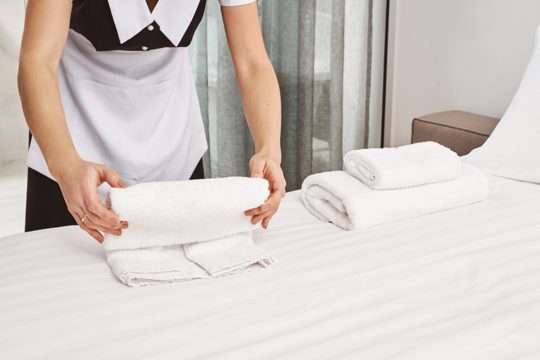
They are the guardians of the hotel’s image, playing a significant role in shaping and refining the guest's perception of the hotel. Lastly, housekeeping is also charged with the upkeep of the hotel's surroundings, ensuring that they remain as immaculate and inviting as the interior.
This involves tasks such as landscaping, outdoor maintenance, and even managing waste disposal. In essence, the housekeeping department is the heartbeat of the hotel's operation, tirelessly working to guarantee the satisfaction of its guests. Their work goes largely unnoticed, but without them, the hotel would quickly lose its charm and efficiency. By maintaining the highest standards of cleanliness, maintenance, and aesthetic appeal, they ensure that every guest leaves with a lasting impression of their stay.
Aesthetic Upkeep
Aesthetic upkeep is a significant aspect of housekeeping. This includes maintaining a visually pleasing environment through tasks such as dusting, arranging, and the upkeep of decorative elements.
Aesthetic upkeep, undoubtedly, is a pivotal aspect of housekeeping that often goes unnoticed but plays a vital role in creating a harmonious living environment. This encompasses the preserving and enhancing of a visually pleasing environment that resonates with the inhabitants' taste and style, making the house feel more like a home. It's not just about cleanliness, but also about creating an atmosphere that invigorates and soothes simultaneously. The tasks involved in aesthetic upkeep range from the simple to the complex. Dusting, for instance, though seemingly trivial, can make a world of difference to the overall ambiance of a room. It's about removing the dullness brought about by dust and grime, allowing the true colors and textures of furniture, fixtures, and fittings to shine through. Arranging is another essential component. It's about more than just organizing items for convenience.
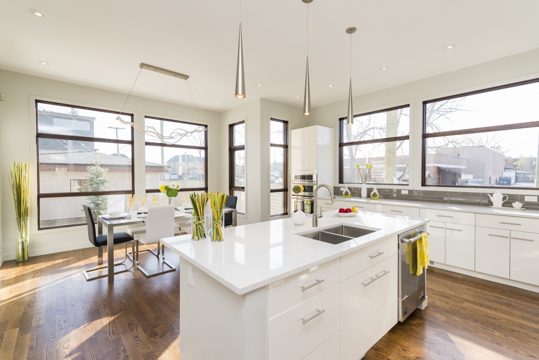
It's about creating a balance, a flow that makes the space not just efficient, but also pleasing to the eye and easy to navigate. It's about considering the visual weight and balance of objects, coordinating colors, and creating focal points that draw the eye.
Lastly, the upkeep of decorative elements is what gives a house its unique character. It's about maintaining and, if necessary, updating these elements to keep them looking their best. Decorative elements can range from artwork to plants, cushions to curtains. Each of these elements, when well-maintained, can contribute to an overall aesthetic that is engaging, personal, and welcoming. In conclusion, aesthetic upkeep in housekeeping is a delicate art that blends functionality and aesthetics. It's about creating an environment that's not just clean and orderly, but also visually engaging and emotionally comforting. It's about making a house a true home, a personal sanctuary where one can relax, rejuvenate, and feel truly at peace.
The Surroundings
Housekeeping also involves the care of the surroundings. This may include outdoor areas, entrances, and other areas that contribute to the overall appeal and functionality of the space.
Housekeeping, as you may be aware, is not confined solely to the upkeep of interior spaces. In fact, it also extends to the vigilant care and maintenance of the surrounding environment. This comprehensive approach to cleanliness and order may encompass a variety of outdoor areas such as beautifully manicured gardens, inviting patios, and even the rarely noticed but vital waste disposal areas. The entrances, too, are a crucial part of housekeeping. These are the first impressions that any visitor or resident experiences, and as such, they hold a pivotal role in shaping perceptions about the entire property.
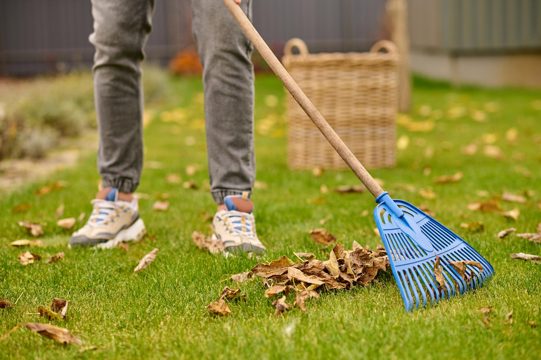
A well-maintained, clean, and inviting entrance can set a positive tone for the rest of the space, hence the need for its meticulous upkeep. Moreover, housekeeping also includes other areas that may not be the first to come to mind when one thinks of this term.
This could be the communal spaces in a residential building, the corridors in a hotel, or even the stairwells in an office block. Each of these areas, although often overlooked, contributes significantly to the overall appeal, functionality, and safety of the space. Therefore, when we think of housekeeping, it's essential to consider it as an all-encompassing task that goes beyond mere cleanliness, reaching out to every corner of the property, both indoors and outdoors, ensuring not just an aesthetically pleasing environment, but also a safe, functional, and welcoming space for all.
In Conclusion
In conclusion, housekeeping is a multifaceted role that plays an integral part in creating and maintaining clean, safe, and aesthetically pleasing environments. Its responsibilities and layout can vary greatly depending on the specific needs of a home or establishment.
In conclusion, the field of housekeeping is a vibrant tapestry, woven with a myriad of responsibilities and tasks, each contributing to the goal of creating and maintaining environments that are not only clean and safe, but also aesthetically pleasing. It is a role that extends beyond mere cleaning; it is an art form, a science, and an essential cog in the wheel of any functioning home or establishment. The responsibilities inherent in housekeeping are as diverse as they are numerous. They can range from routine tasks such as vacuuming and dusting, to more complex duties like organizing spaces, maintaining inventory, and even managing waste disposal. Every task, no matter how seemingly trivial, contributes to the overall ambiance and functionality of the space, thereby impacting the mood and productivity of its occupants.
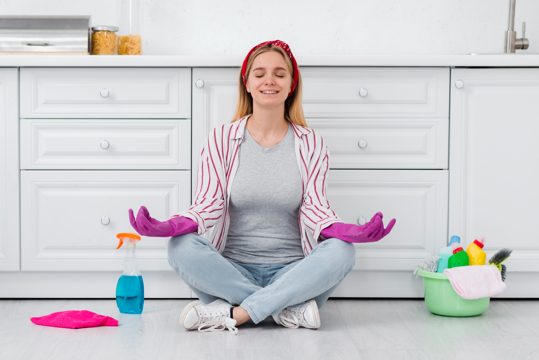
Furthermore, the layout and organization of housekeeping duties can differ greatly, tailored to meet the unique needs and preferences of each individual home or establishment. A household with children, for instance, may prioritize sanitation and organization, while a boutique hotel might place a higher emphasis on aesthetics and attention to detail.
This flexibility and adaptability is yet another testament to the vital role housekeeping plays in our daily lives. In essence, housekeeping is far more than a simple role; it is a cornerstone of comfort, cleanliness, and efficiency. It is a profession that demands dedication, skill, and an unwavering commitment to creating spaces that truly feel like home.
About us
Welcome to SeniorCaresHub! Welcome to our comprehensive senior care destination! We pride ourselves on being a trusted resource for all things related to caring for aging loved ones. We understand the unique needs and challenges that come with senior care, and our mission is to provide you with the information, resources, and support you need to confidently navigate this journey and help you provide the best possible care for your aging loved one.

